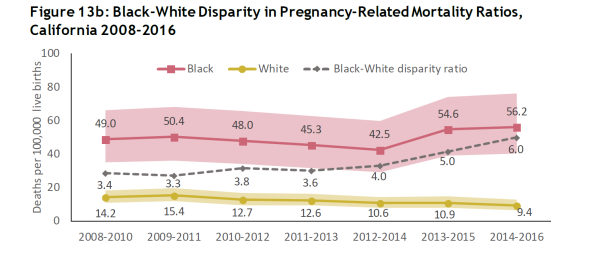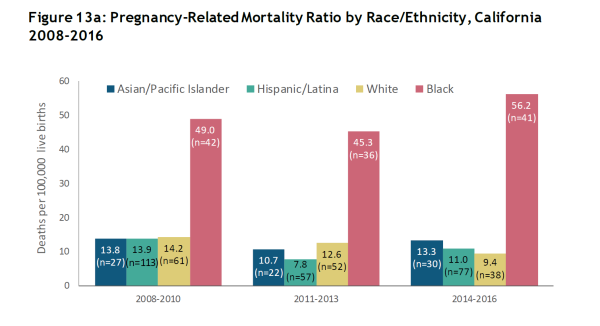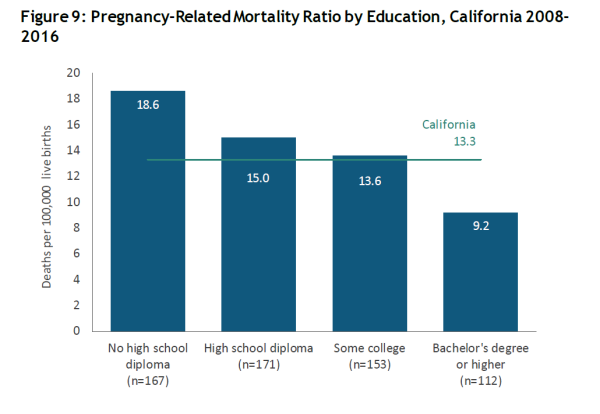
By Cori Zaragoza, Contributing Writer
Senate bill 65 (SB 65), also known as the California Momnibus Act, was passed by the California state senate on September 19, 2021 and will now be brought before Governor Gavin Newsom for signing. The act was written by Senator Nancy Skinner, vice chair of the Legislative Women’s Caucus, and it passed unanimously among the Senate with a vote of 77 to 0. The bill aims to provide better research and support to families of color to lead them to better health outcomes after giving birth.
SB 65 will implement and expand various programs to help reduce pregnancy related deaths, specifically amongst people of color. California’s Pregnancy-Associated Mortality Review Committee will be codified and expanded to gather data on maternal and infant deaths and will provide recommendations on how to help reduce them. The Committee will talk to medical professionals and family in the cases of deaths related to pregnancy to understand what happened and gain fuller pictures of why these deaths occur.

Additionally, the bill will establish a fund for midwife training programs that focus on working within underserved communities and communities of color. The bill will also expand on implementing other programs related to maternity health that were previously included in the 2021-2022 State Budget, such as the inclusion of midwife and doula care being covered under Medi-Cal.
The need for the Momnibus Act was magnified after a 2021 study released by the California Department of Public Health (CDPH) showed stark racial disparities between maternal deaths amongst white Californians and Black Californians. The report was done by the California Pregnancy Mortality Surveillance System and looked at the death rate amongst pregnant people and infants between 2008 through 2016. What it revealed was that in California Black women died during live births at six times the rate of white women. From 2014 to 2016, 56 Black women died per 100,000 live births, compared to 13 Asians, 11 Latinas, and fewer than 10 whites.

The pregnancy-related mortality ratio is also directly affected by education, growing to 18.6 deaths per every 100,000 live births among women without high school diplomas. The report also showed that Black women were overrepresented among pregnancy-related deaths from all causes, showing that racial/ethnic disparities in pregnancy-related mortality ratios are getting worse.

“The reality is there is a disparity between Black and white women and it’s not getting better,” said Kimberly D. Gregory, director of maternal fetal medicine at Cedars-Sinai Medical Center in Los Angeles and former member of the California pregnancy surveillance committee, in a September 24 article by The Associated Press.
In San Diego County, according to the Maternal, Child, and Family Health Services (MCFHS), the maternal mortality rate between 2015 to 2019 was 37 deaths per every 205,769 live births. The statistics and rate for Black women, or any other racial groups, is not documented.
The expansion for doulas under Medi-Cal will begin in January 2022, and the rest of the Momnibus Act goes to final approval under Governor Newsom next. Many organizations are urging him to sign the law into place as soon as possible. One of those organizations is the Western Center on Law and Poverty, and their policy advocate Jen Flory had this to say to the Associated Press; “If you really want to address the issue, it is going to take a serious investment and resources, whether that means providing every Black mother a doula or really investigating what’s happening when Black mothers die.”
The San Diego Voice & Viewpoint Newspaper’s coverage of local news in San Diego County is supported by the Ethnic Media Sustainability Initiative, a program created by California Black Media and Enthnic Media Services to support minority-owned-and-operated community newspapers across California.


